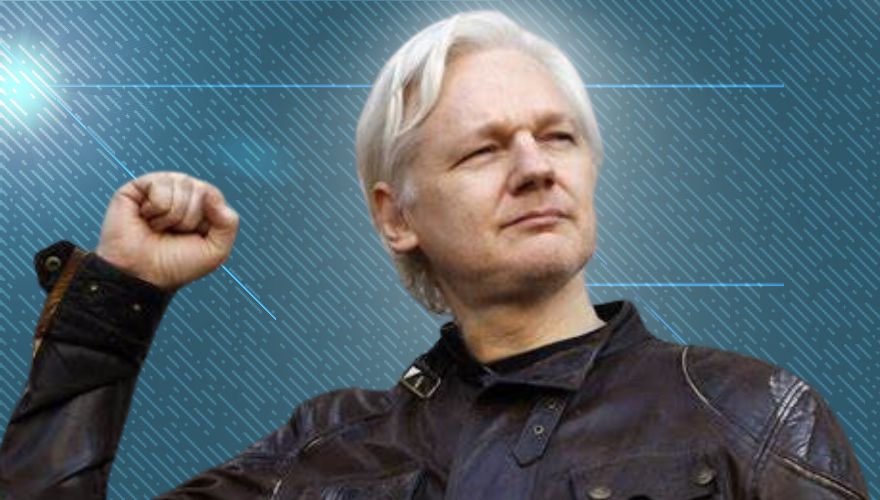The UK High Court has ruled that Julian Assange has the right to a full appeal against extradition to the United States.
The WikiLeaks founder can now present his case again to a British court before any U.S. extradition process can proceed.
If extradited, Assange faces up to 175 years in prison for publishing classified material about wars in Afghanistan and Iraq. 🚨BREAKING: Julian Assange has been granted partial leave to appeal his extradition to the US.
The High Court in London ruled that Assange can appeal on grounds 4 and 5, which relate to discrimination at trial based on his nationality. https://t.co/pFSVqy281Y
— Declassified UK (@declassifiedUK) May 20, 2024
In court Monday, defense attorneys Edward Fitzgerald and Mark Summers argued that Assange, an Australian, may not be entitled to First Amendment rights in the U.S., which could result in a prejudiced trial.
The London High Court had previously ruled that extradition could move forward if the U.S. government provided assurances that Assange “is afforded the same First Amendment protections as a United States citizen, and that the death penalty is not imposed.”
Though the U.S. provided those assurances, Assange’s defense further argued the assurances do not amount to “a significant undertaking or promise that could allay the court’s concerns on this point.”
"The equivocal at best and downright inadequate assurance that has been given,”
“The court must ask itself: has this assurance removed the real risk that we identified? In our judgment, we submit that it hasn’t," said Fitzgerald, per Declassified UK, who added that the assurance was "equivocal at best and downright inadequate."
Citing case law, Summers claimed that the U.S. might attempt to argue in court that nationality and citizenship are different concepts.
Prosecutor James Lewis said Assange would be able to request, but may not be able to rely upon, First Amendment rights in the U.S. He further suggested Constitutional protections may not be guaranteed as a result of his actions against U.S. national security.
Fitzgerald argued Lewis failed to assure that Assange will not be excluded from Constitutional protections.
After a 10-minute break, Judge Victoria Sharp announced the WikiLeaks founder would be granted leave to appeal on partial grounds due to the possibility of a prejudiced trial over his nationality.
After the ruling, Assange's wife, Stella, called for an abandonment of "this shameful attack on journalists, on the press, on the public, that has been going on for 14 years."
"The judges reached the right decision," she added. "We spent a long time hearing the United States putting lipstick on a pig, but the judges did not buy it."
"This case is shameful and it is taking an enormous toll on Julian," she said. "He has been in Belmarsh prison for over five years."
She implored the Biden administration to drop the case. “We spent a long time hearing the United States putting lipstick on a pig but the judges did not buy it” - @Stella_Assange reacting to the breaking news of the courts granting #JulianAssange the right to appeal his extradition
Livestream: https://t.co/tOe9QXtAdC
Donate here:… pic.twitter.com/lc0siJjYyS
— Free Assange - #FreeAssange (@FreeAssangeNews) May 20, 2024
In March, Assange was granted a partial victory when the British High Court ruled he could not immediately be extradited to the U.S.
In a 66-page judgment, Judge Jeremy Johnson and Sharp agreed to grant Assange a new appeal unless the U.S. government provided assurances that the WikiLeaks founder “is afforded the same First Amendment protections as a United States citizen, and that the death penalty is not imposed.”
“The ruling follows a two-day hearing in the High Court in February, where Assange’s lawyer Edward Fitzgerald said American authorities were seeking to punish him for WikiLeaks’ ‘exposure of criminality on the part of the U.S. government on an unprecedented scale,’ including torture and killings,” The Associated Press reported. “The U.S. government said Assange’s actions went beyond journalism by soliciting, stealing and indiscriminately publishing classified government documents that endangered many people, including Iraqis and Afghans who had helped U.S. forces.”
The court found that Assange had a “real prospect of success” on the following three out of nine grounds for appeal: his extradition is incompatible with the right to freedom of expression; he might be prejudiced on grounds of nationality; and he may receive inadequate protection from the death penalty.
The official WikiLeaks account posted on X that the requested assurances from the U.S. government were deemed “inherently unreliable” by Amnesty International.
Stella Assange was also critical of the dependability of such assurances.
"U.S. assurances are not worth the paper that they are written on,” she said during a press conference after the March ruling. “The United States, of course, is a country that has plotted to assassinate and kidnap Julian, a publisher, in order to silence him.”
Ahead of the decision in March, reports surfaced suggesting that the U.S. Department of Justice was considering a possible plea deal for Assange, which could finally bring an end to his arduous legal journey that began over a decade ago.
According to unnamed sources who spoke with the Wall Street Journal, officials within the DOJ are considering allowing Assange to plead guilty to a reduced charge of mishandling classified information.
The U.S. indictment charges Assange with 17 counts under the Espionage Act, a move that some observers argue could criminalize common practices in investigative journalism.
The allegations suggest that Assange conspired with Chelsea Manning, a former U.S. Army intelligence analyst, to hack into U.S. military databases, which led to the publication of sensitive documents that exposed military and diplomatic secrets.

